Prof. Yedidia Z. Stern
Former Senior Fellow, Center for Religion Nation and State; Academic Director, Human Rights and Judaism Program

Former Senior Fellow, Center for Religion Nation and State; Academic Director, Human Rights and Judaism Program

Written By: Prof. Yedidia Z. Stern
The real reason behind Israel's elections: The Knesset dispersed itself because one man, the prime minister, finds himself in a situation in which his fate depends on the courts.
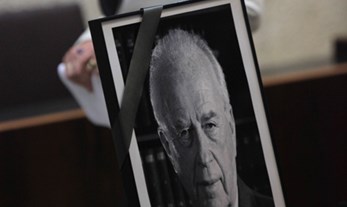
Written By: Prof. Yedidia Z. Stern
Although 25 years have passed since that terrible night - the mourning for a murdered prime minister, assassinated out of political and religious motives, must never fade away and must never be forgotten

Written By: Prof. Yedidia Z. Stern
Rabbi Kanievsky’s decision to disregard the law and open ultra-Orthodox schools is the first time in Israeli history that we are seeing something that approaches a call for mass civil disobedience orchestrated by a key public figure.
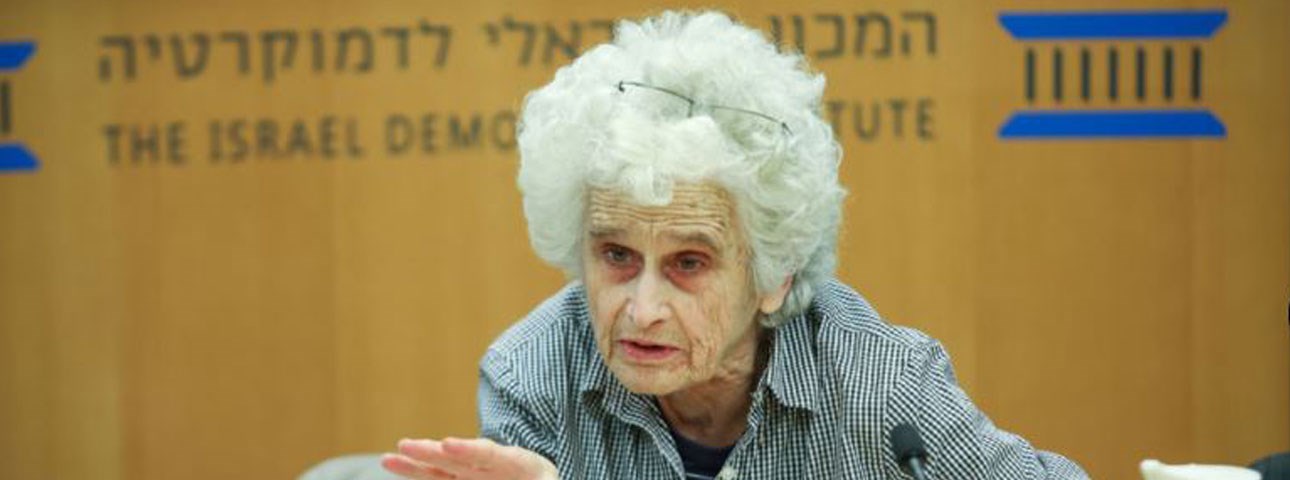
Written By: Prof. Yedidia Z. Stern
“We must find ways to live together, not necessarily to decide in favor of one or another direction.” Prof. Ruth Gavison
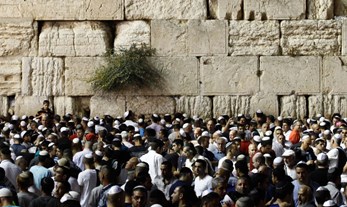
Written By: Prof. Yedidia Z. Stern
Every generation has its own barns, whose stock is the source of its national resilience. We have a supreme obligation to protect them against those who would set them afire to promote their ideology

Written By: Prof. Yedidia Z. Stern
The government must be attuned to the will of the overwhelming majority of the people and amend the Nation State Law by adding the obligation to act in the spirit of the Declaration of Independence

Written By: Prof. Yedidia Z. Stern
Now more than ever Israel needs a leader who will bolster its inner strength - is the leadership up to the task?

Written By: Prof. Yedidia Z. Stern
The Prime Minister’s supporters are trying to entrench a perception among the public that he is facing a political – rather than a criminal – trial.

Written By: Prof. Yedidia Z. Stern
It's one of democracy's substantial achievements: just like every citizen, Netanyahu will stand before 3 judges, whose task is to decide whether he is innocent or guilty
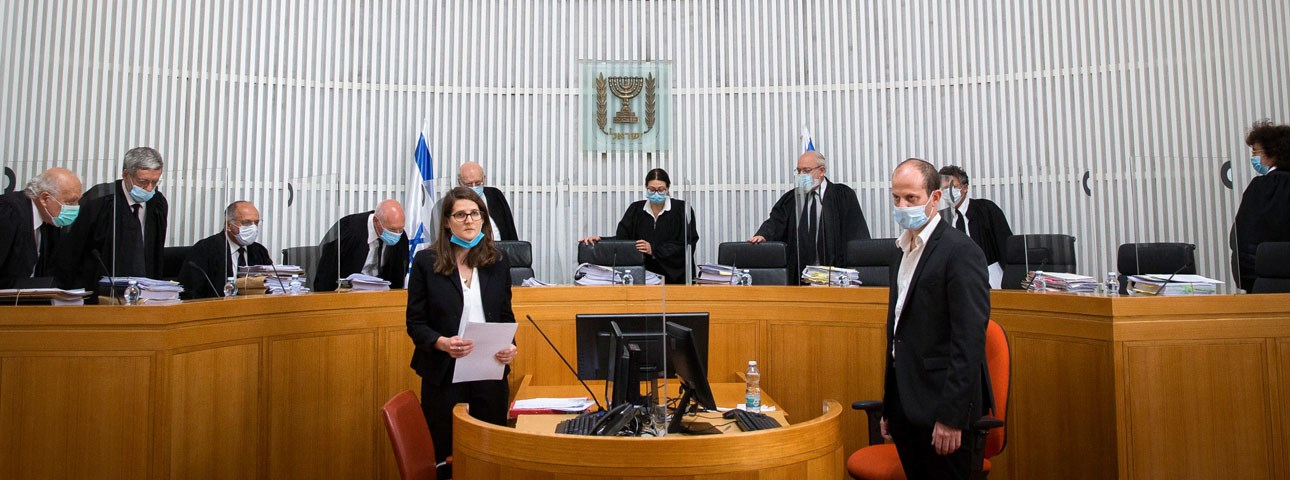
Written By: Prof. Yedidia Z. Stern
Israel's High Court handed down a unanimous decision - and the public saw for themselves that there was no devious plot to undermine the separation of powers.
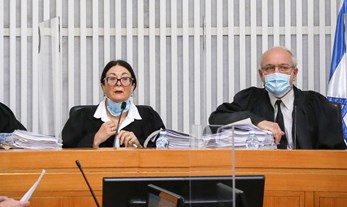
Written By: Prof. Yedidia Z. Stern
Many Israelis attribute a left-wing bias to the Supreme Court and accuse it of extreme activism, but the hearings that were broadcast live highlight the vast gulf between the Court's image and the reality
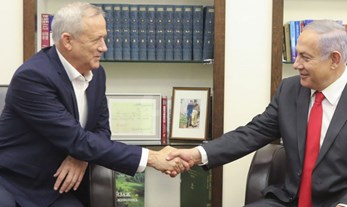
Written By: Prof. Yedidia Z. Stern
This is a familiar plague: rewriting the game rules of democracy to suit changing political circumstances has become the norm in Israel.

Written By: Prof. Yedidia Z. Stern
The tragic results of initial faulty advice from leading rabbis is a wake-up call to Haredi Jews to start making their own decisions.

Written By: Prof. Yedidia Z. Stern
Even a life-saving measure must be weighed against the threat it poses to democracy -- we do it all the time
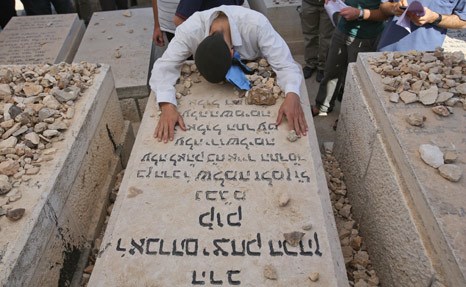
Written By: Prof. Yedidia Z. Stern
Let’s imagine a conversation between Rabbi Abraham Isaac Hacohen Kook, religious Zionism’s greatest thinker, and the four Yamina Party leaders.

Written By: Prof. Yedidia Z. Stern
A 3-pronged plan to change the balance of power in government threatens everyone who cares about human rights, regardless of politics
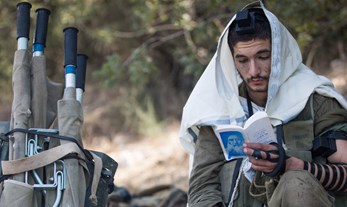
Written By: Prof. Yedidia Z. Stern
A proposal by the panel appointed to investigate ultra-Orthodox enlistment to lower the exemption age defies multiple High Court rulings
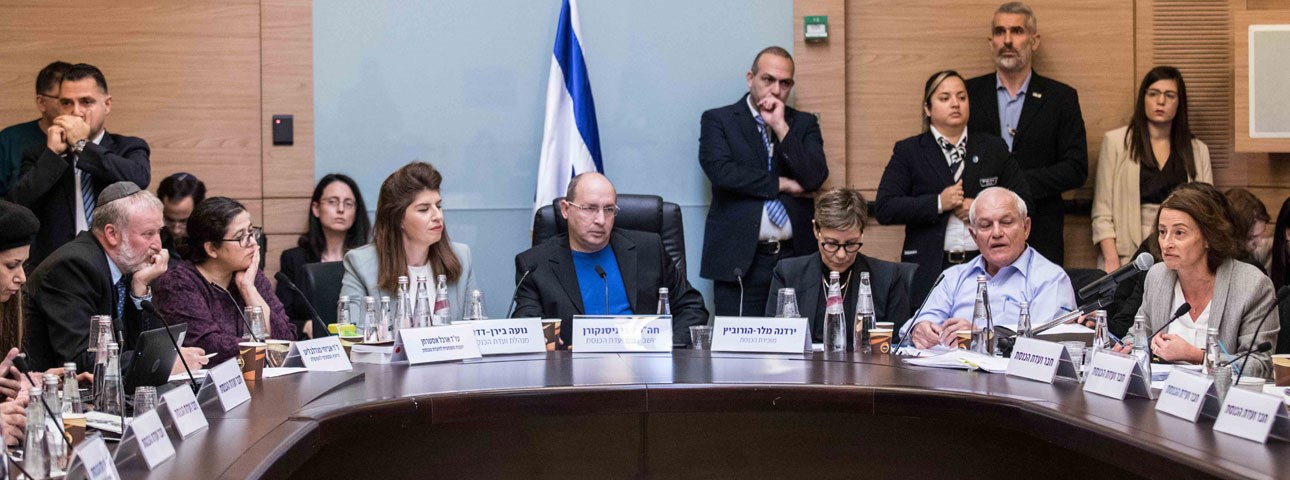
Written By: Prof. Yedidia Z. Stern
In the case of a MK against whom the attorney-general has decided to file an indictment, the members of his party and of his Knesset bloc vote as one.
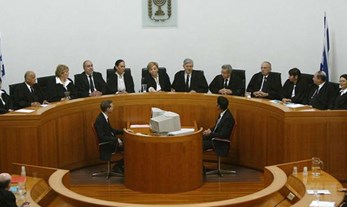
Written By: Prof. Yedidia Z. Stern
Regardless of the decision regardin PM Netanyahu's request for immunity - the debate will revolve around the more important question: the status of the rule of law in Israel

Written By: Prof. Yedidia Z. Stern
Given the dark insinuations in the PM's request for Knesset immunity, a vote in his favor would be a vote of no-confidence in the rule of law

Written By: Prof. Yedidia Z. Stern
Israeli Voters, Not Judges, Must Determine Who Will Lead the Country Next
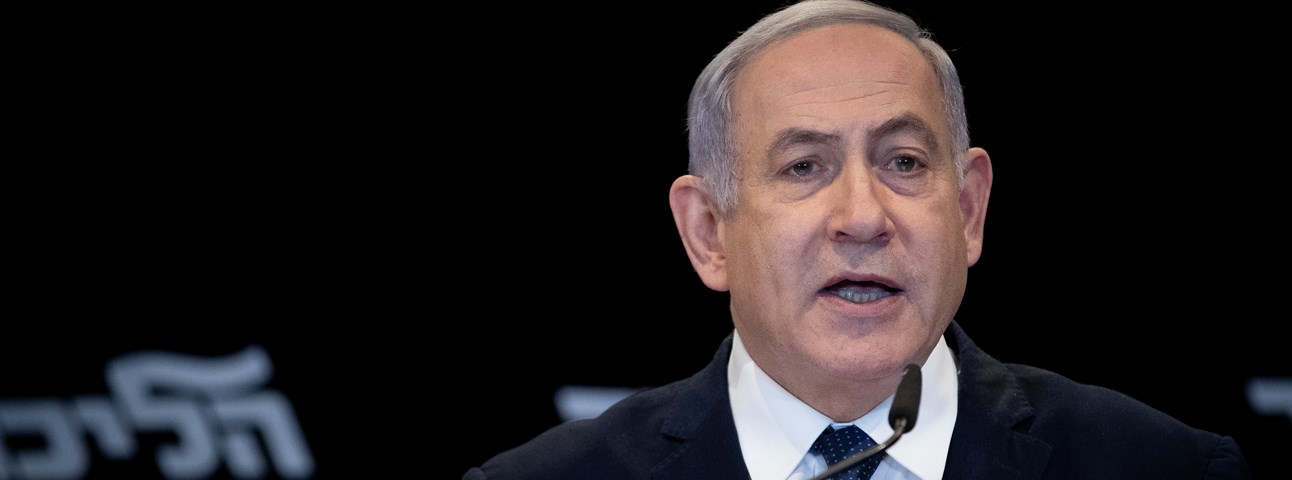
Written By: Prof. Yedidia Z. Stern
After lengthy deliberation, the attorney-general, who holds the statutory authority to file charges against him, decided to indict Netanyahu.

Written By: Prof. Yedidia Z. Stern
Our level-headed, intelligent, rational prime minister has lost his good judgment and is inciting against some of the most important institutions of state
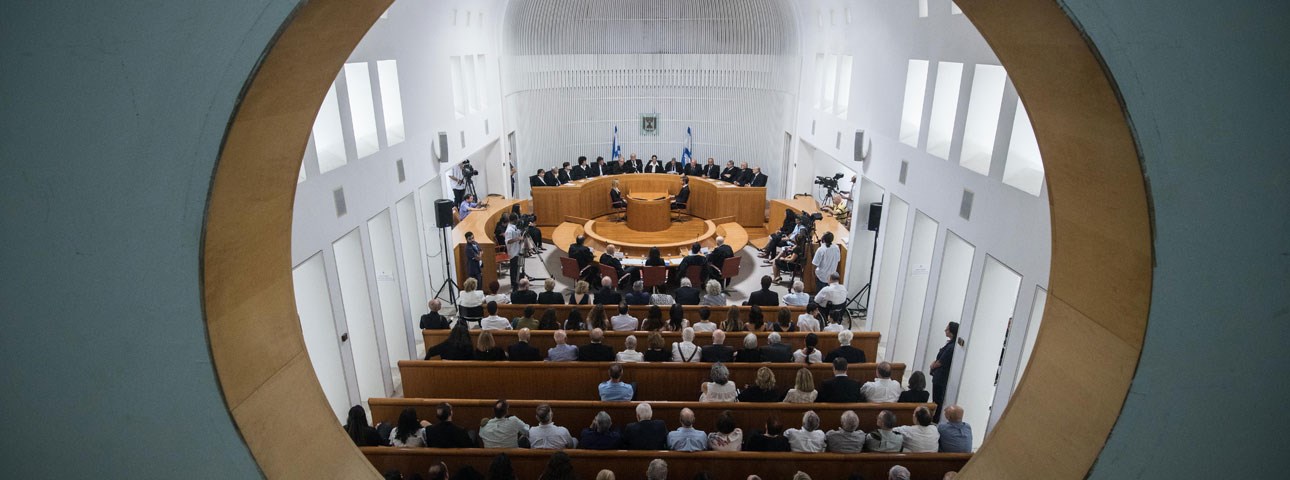
Written By: Prof. Yedidia Z. Stern
Justice Minister Amir Ohana,has launched a fierce attack against the State Attorney’s Office. The Prime Minister who appointed him would be wise to remember that the angel of history is peeking over his shoulder.

Written By: Prof. Yedidia Z. Stern
Profit remains the ultimate objective, but the focus should be on profit for all those with a stake in a company, and not just its shareholders
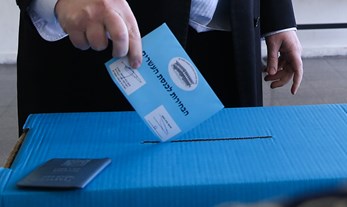
Written By: Prof. Yedidia Z. Stern
Despite all the fears, voter turnout was quite respectable (the third-highest rate in the seven elections this century).

Written By: Prof. Yedidia Z. Stern
Will religion & state be at the center of the election campaign in Israel? Who benefits from putting this topic at the top of the agenda? And are we on the brink of a cultural war in Israel? TIP drills down with Prof. Yedidia Stern.
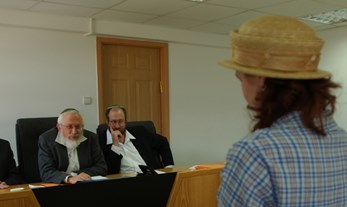
Written By: Prof. Yedidia Z. Stern
The rigid halakhic position might make conversion irrelevant as the integration of “non-Jewish Jews” into Israeli society will soon legitimize the sociological path to becoming a Jew, outside the bounds of religion, and make conversion superfluous.

Written By: Prof. Yedidia Z. Stern
Is it conceivable, for example, that a legislative body would enact a tax that would never apply, to its own members?

Written By: Prof. Yedidia Z. Stern
“The future coalition aspires to replace the current “judicialization of Israeli life” with the “politicization of Israel law”, says Yedidia Stern
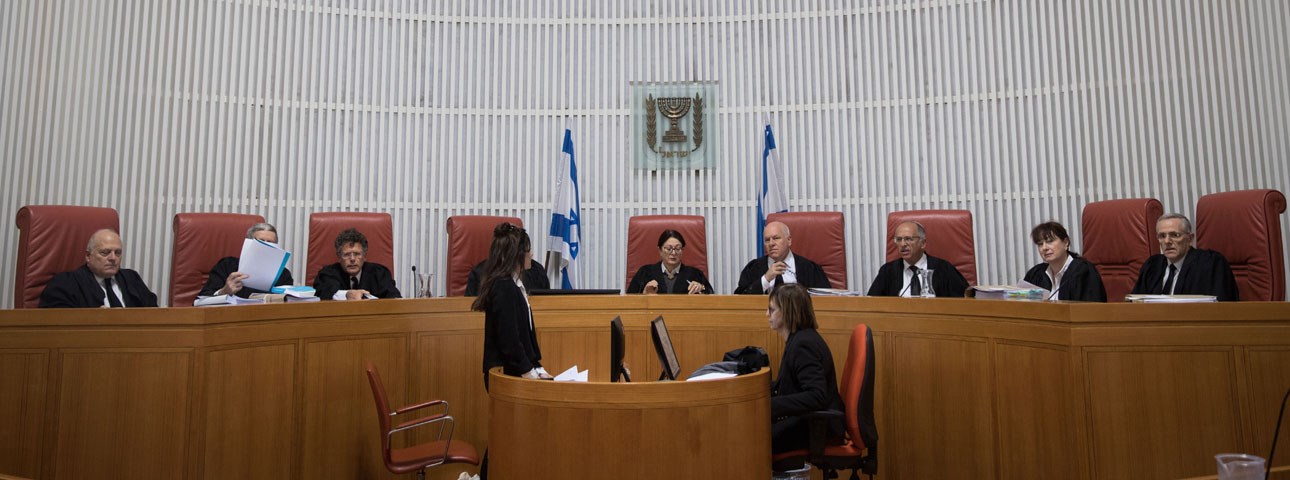
Written By: Prof. Yedidia Z. Stern
The conservatives who think the court is moved by a malicious intent to stamp out politics are mistaken. Our High Court of Justice is squeaky clean, and of the highest possible caliber
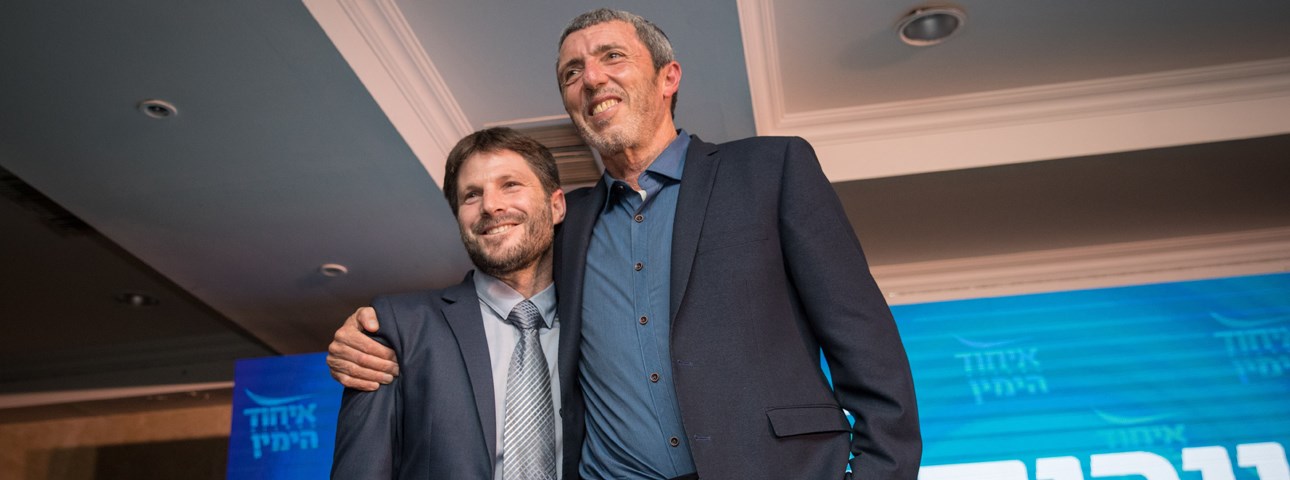
Written By: Prof. Yedidia Z. Stern
Religious Zionism does not want to isolate itself, but rather to integrate.

Written By: Prof. Yedidia Z. Stern
Voter’s Day, between vicious campaigning and brutal coalition cobbling, lets us appreciate the great equalizer of 'one person, one vote'
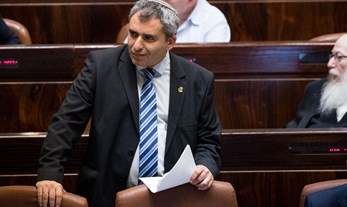
Written By: Prof. Yedidia Z. Stern
The best estimate is that the religious and ultra-Orthodox will account for nearly a third (!) of the next Knesset. Should we be concerned that the Knesset is getting more religious?

Written By: Prof. Yedidia Z. Stern
Instead of training rhetorical cannons on the court, which is doing its job in a chaotic situation, the legislature should delete Section 7A from the Basic Law. Let everyone run for the Knesset, and let those who violate criminal laws bear the consequences of their actions
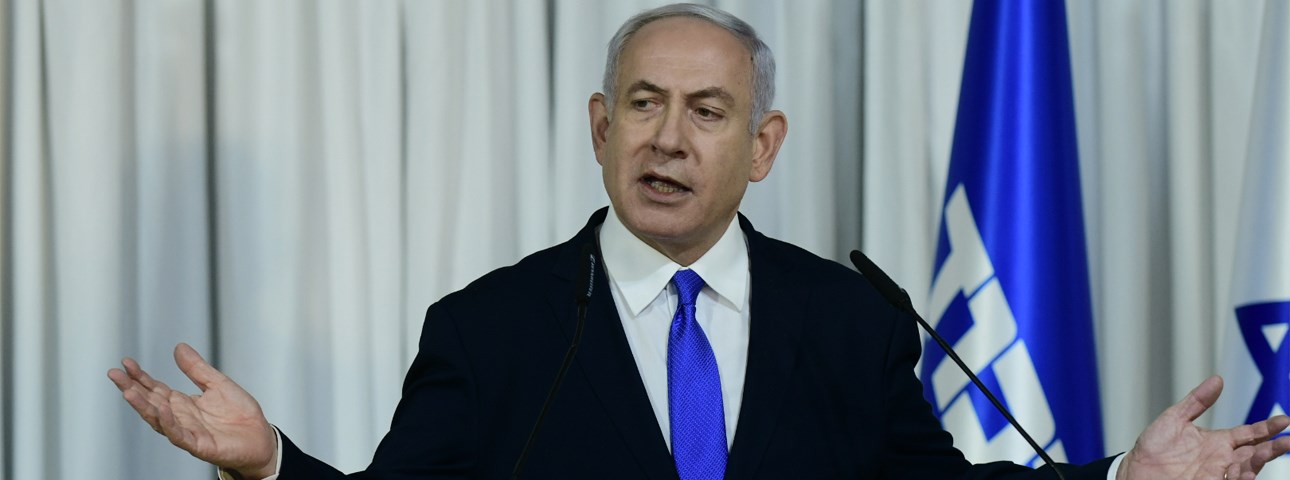
Written By: Prof. Yedidia Z. Stern
While the final decision about an indictment will not be made until after a hearing, with the publication of the draft indictment, the Prime Minister must decide whether he will launch a public campaign under the reverse heading: “Benjamin Netanyahu vs. the State of Israel"
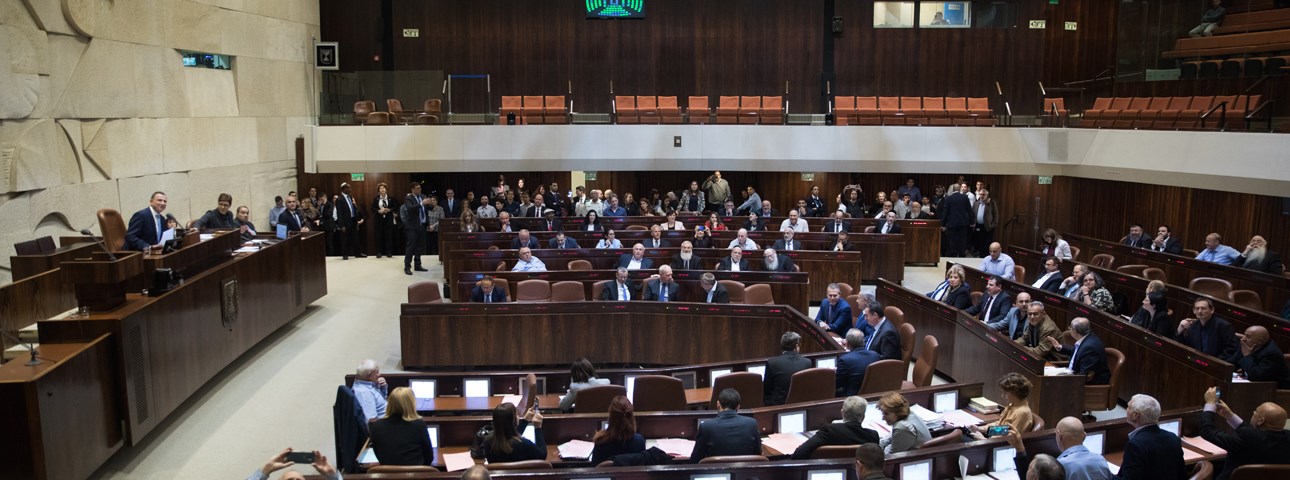
Written By: Prof. Yedidia Z. Stern
“The great task before all — right and left, religious and secular, Jew and Arab — is to break down the veto power that the extremists among us wield over the center on various fronts”
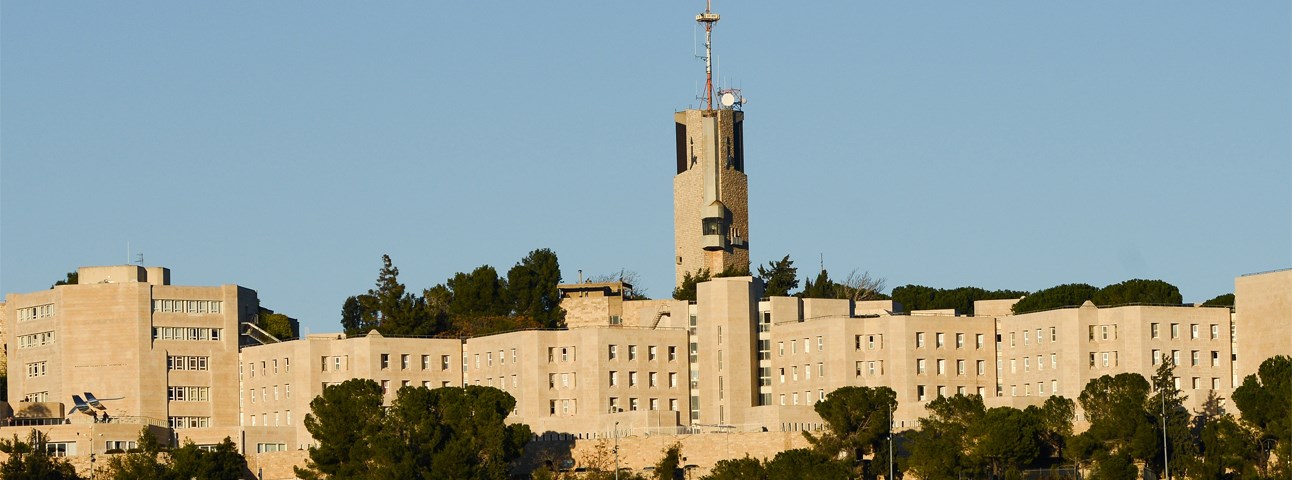
Written By: Prof. Yedidia Z. Stern
Israeli society—its marketplace of ideas, its democratic institutions, the rule of law, the components of national identity—is caught in the turbulent vortex of a kulturkampf—a “culture war”.
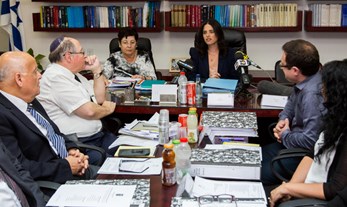
Written By: Prof. Yedidia Z. Stern
"If indeed a member of the Judicial Appointments Committee was swayed by bribes, this constitutes the deepest possible subversion of the system and its legitimacy".
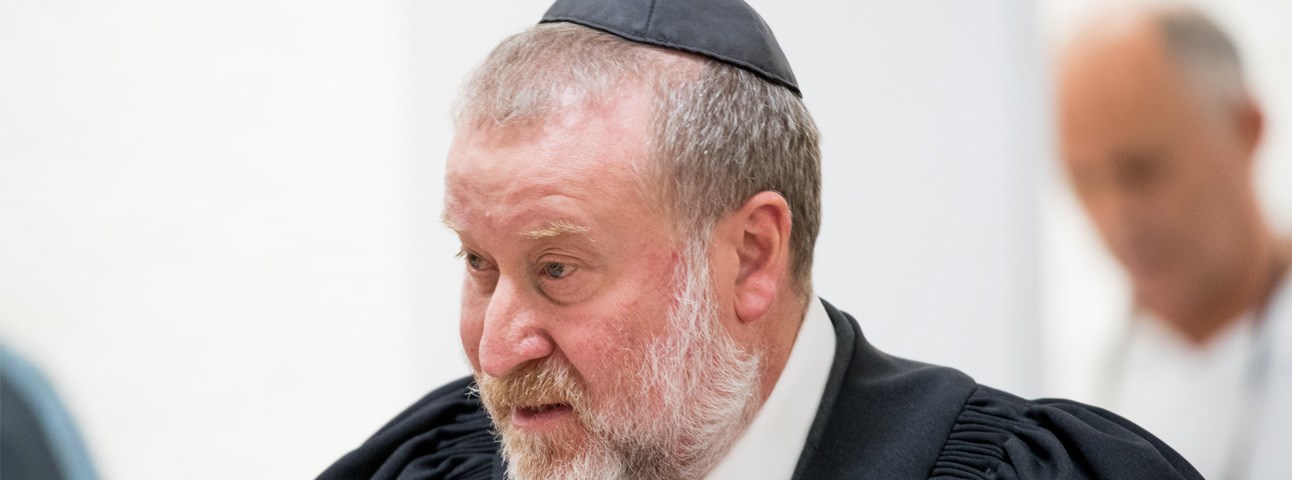
Written By: Prof. Yedidia Z. Stern
One fact is clear: the moment the attorney-general announces his decision, half of the public will reject it, to the point of accusing him of serving political interests and not really seeking the truth.

Written By: Prof. Yedidia Z. Stern
How despicable is a mob that calls for non-partisanship but is unwilling to listen to a voice that speaks for a majority of Israelis today?
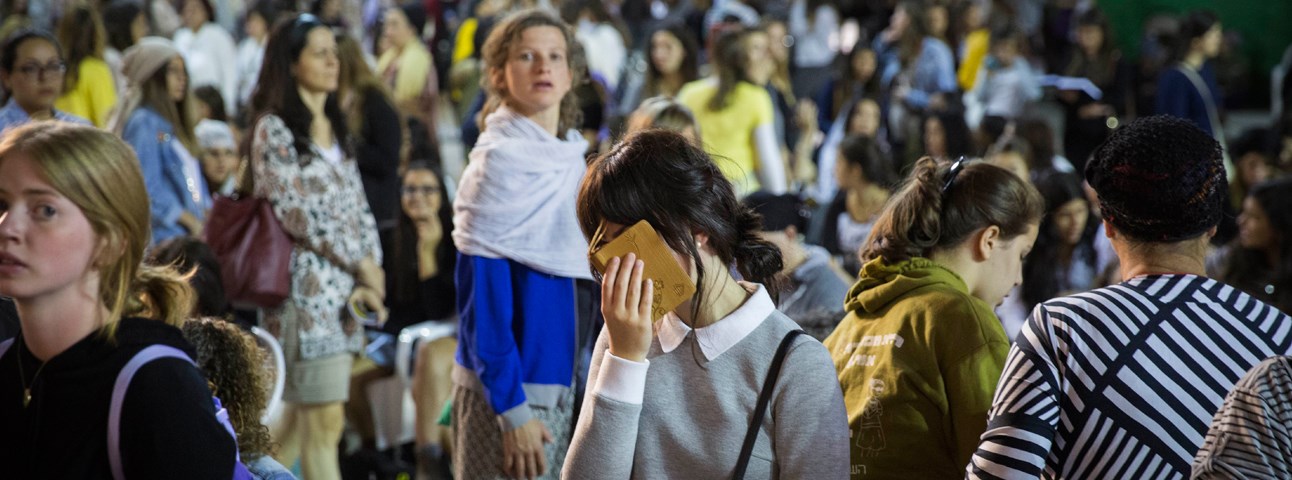
Written By: Prof. Yedidia Z. Stern
Shared responsibility, engraved in Jewish tradition, is one of the secrets of the State of Israel's success and the use of the plural form in confession reflects this perception.
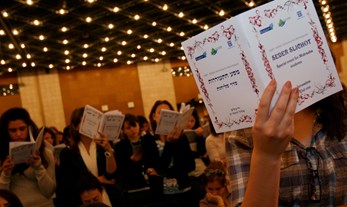
Written By: Prof. Yedidia Z. Stern
A collective Israeli repentance will enable us all to pray together for our common good, even if the content of our prayers is a matter of fierce disagreement.
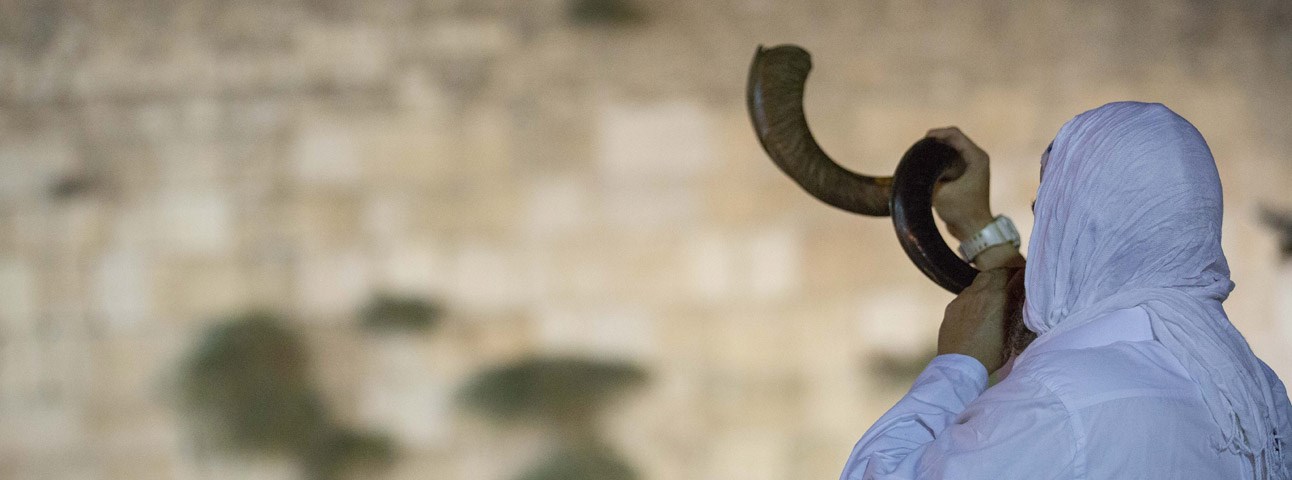
Written By: Prof. Yedidia Z. Stern
The Jewish calendar should guide our lives not only as individuals and a community, but also as a society and a state. If we want to preserve our identity as a distinct cultural and national group, we must make the effort to shape the cycle of time in our own way.

Written By: Prof. Yedidia Z. Stern
Yedidia Stern, speaks to hosts Dahlia Scheindlin and Gilad Halpern about the fundamental nature of Israeli society – and how it is changing. He expresses his fears about disturbing the balance of a Jewish and democratic state, as the nation-state law threatens to do. He believes that Israel must be a Jewish state, but without a legal anchor for equality, society is in trouble. He reflects on how religious life is being dominated by the ultra-orthodox; and diaspora Jews, especially Americans, should have a say in public life but not too much.
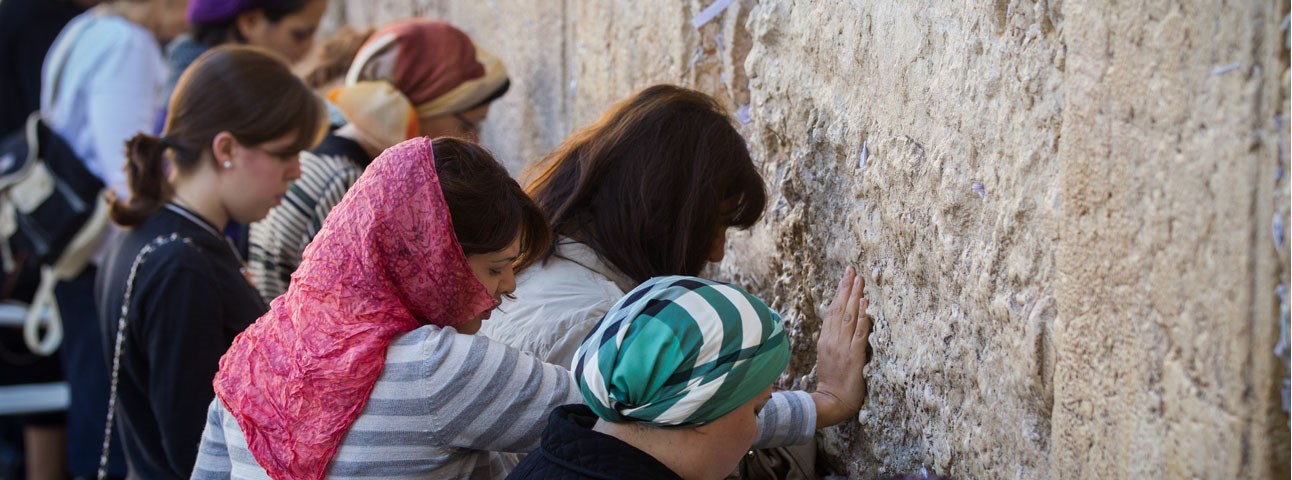
Written By: Prof. Yedidia Z. Stern
What message of Tisha B’Av is relevant for life in a sovereign state like Israel? Does the American recognition of Jerusalem as the capital of Israel make the day of mourning for “the city that is in mourning, laid waste, despised and desolate” an anachronism?
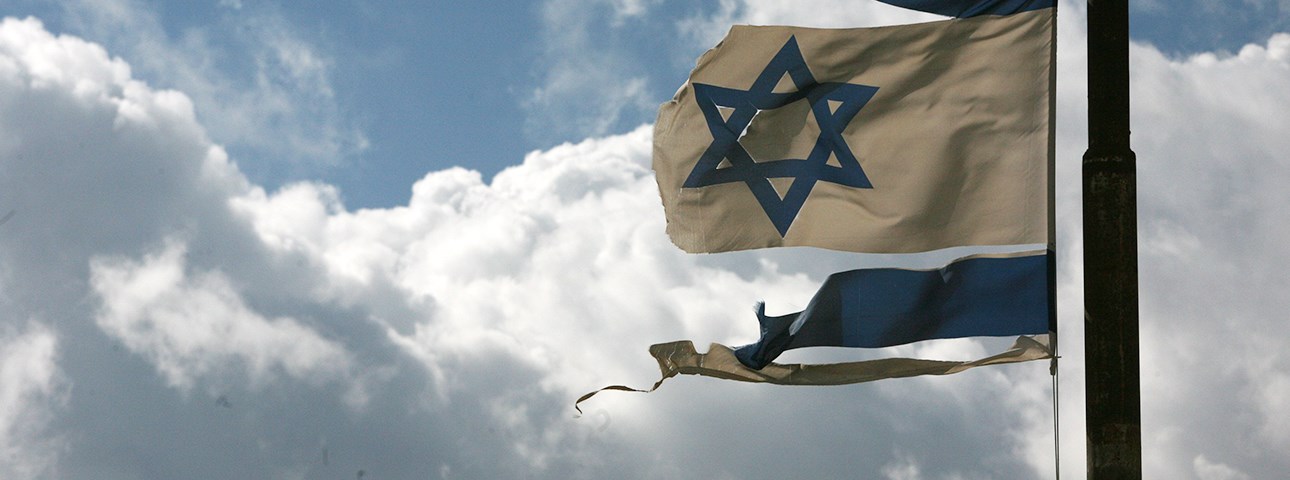
Written By: Yohanan Plesner , Prof. Yuval Shany, Prof. Yedidia Z. Stern
The Israel Democracy Institute issued a letter to the Prime Minister regarding the Nation State Billl, asserting that if the value of equality is not anchored in the legislation alongside the other enumerated national characteristics of the state, the law may eventually erode Israel's democratic character
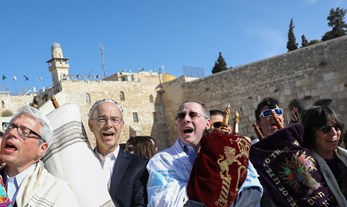
Written By: Prof. Yedidia Z. Stern, Dr. Shuki Friedman
Leading public figures avoid dealing with issues that are of national importance when it entails confronting the ultra-Orthodox community.
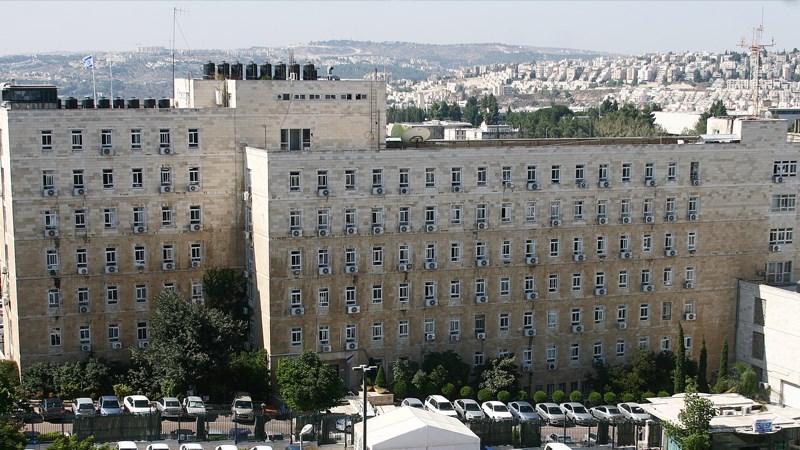
Written By: Prof. Yedidia Z. Stern
Government-sponsored legislation proposing to change how ministry legal advisors are appointed has stirred up quite a storm. The idea should worry all of us, not only jurists.

Written By: Yohanan Plesner , Prof. Yuval Shany, Prof. Yedidia Z. Stern
The Israel Democracy Institute ahead of the Knesset Constitution Committee debate on political appointments of legal advisers in government ministries: "A blow to the civil service ethos; an opening for potential corruption, forsakes public interest".
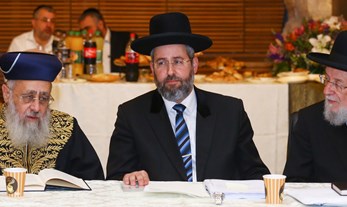
Written By: Prof. Yedidia Z. Stern
On the practical side, religious conversion hasn’t ‘delivered the goods’ so far. Although it has been officially declared a national mission, less than 10 percent of non-Jewish immigrants and their offspring have completed the process. As a result, one in 20 non-Arab Israelis isn’t recognized as a Jew, despite having made aliyah under the Law of Return.

Written By: Prof. Yedidia Z. Stern
Prof. Yedidia Stern, Vice President of the Israel Democracy Institution said that the proposed conversion law is an important step. The state must take responsibility and resolve the issues that affect so many lives

Written By: Prof. Yedidia Z. Stern
The government’s conduct and the public’s indifference have far-reaching implications – and not only from a utilitarian perspective. Diaspora Jewry’s economic, political and cultural contributions to the State of Israel are no longer guaranteed, but above all, the unity of the Jewish people around the globe as one nation is under threat
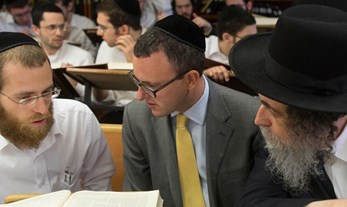
Written By: Prof. Yedidia Z. Stern, Dr. Netanel Fisher
A new book from the Israel Democracy Institute
exposes the failures of the State conversion system over three decades
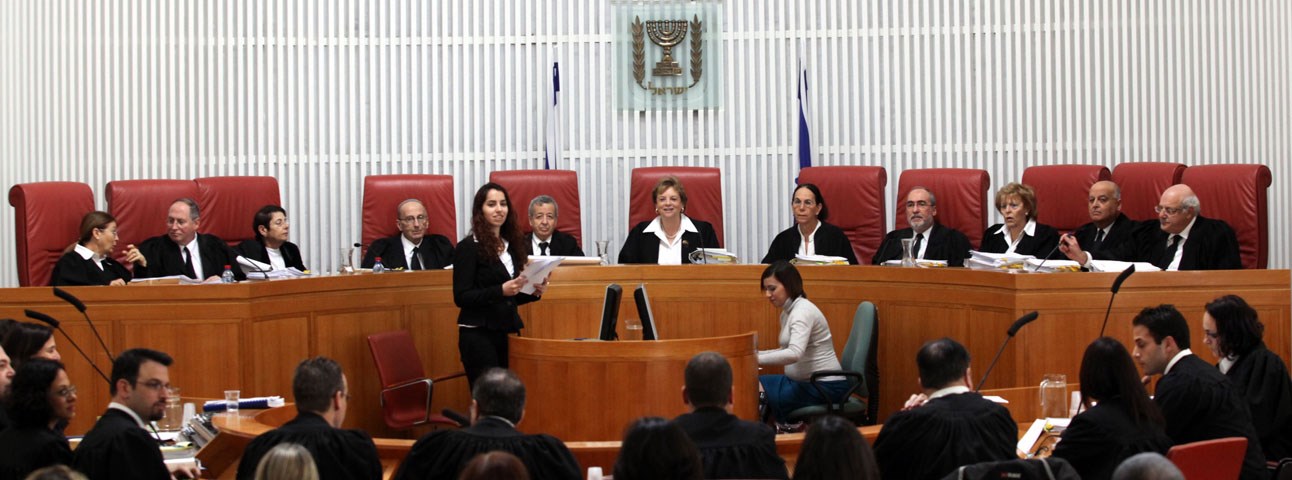
Written By: Prof. Yedidia Z. Stern
The proposed amendment which will strip the Supreme Court of the power to invalidate legislation (“the British model”), or alternatively, would allow the Knesset, by a vote of 61 of its members to reinstate a law that the court has struck down (“the override clause”) pose a grave threat to every single Israeli citizen.
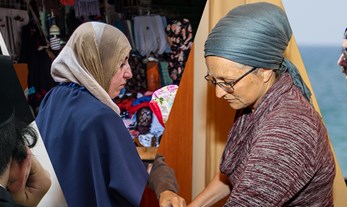
Written By: Prof. Yedidia Z. Stern
Israel is a success story on many levels — social, economic, scientific, and in terms of protecting its security. Nevertheless, many of its citizens see the country as treading water. What is the source of this dissonance?
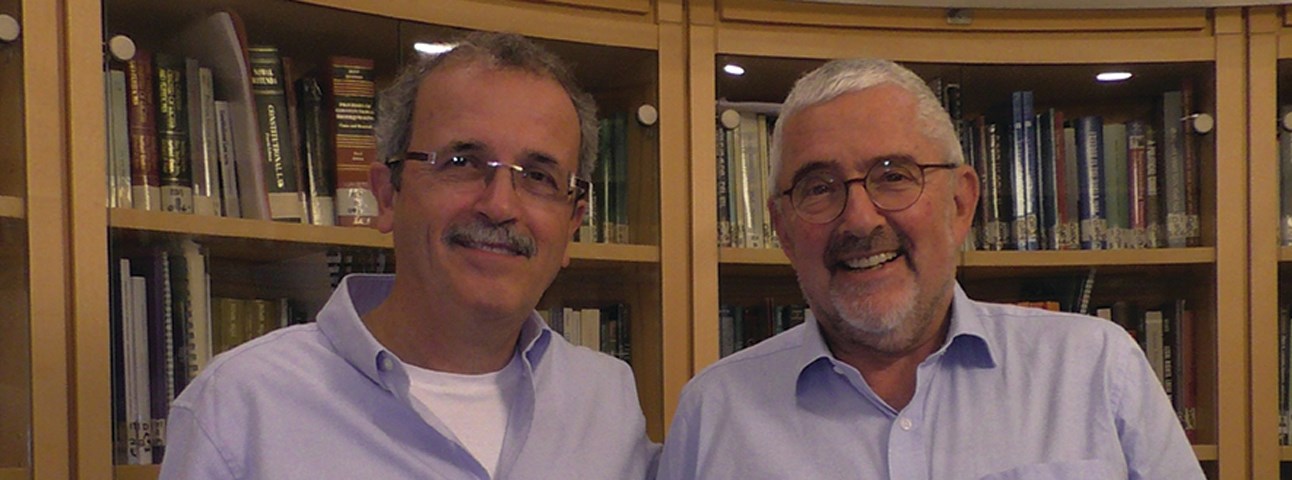
Written By: Maayan Hoffman, Prof. Yedidia Z. Stern, Mr. Alan Hoffmann
Thought leaders recommend an ‘all in the family’ perspective when it comes to challenges between Jews in Israel and the Diaspora.
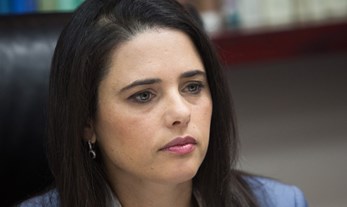
Written By: Prof. Yedidia Z. Stern
“The campaign to remake the Supreme Court has been completed” said Justice Minister Shaked - so now with its new and more conservative profile, there is no longer any justification for the delegitimization of the Supreme Court.
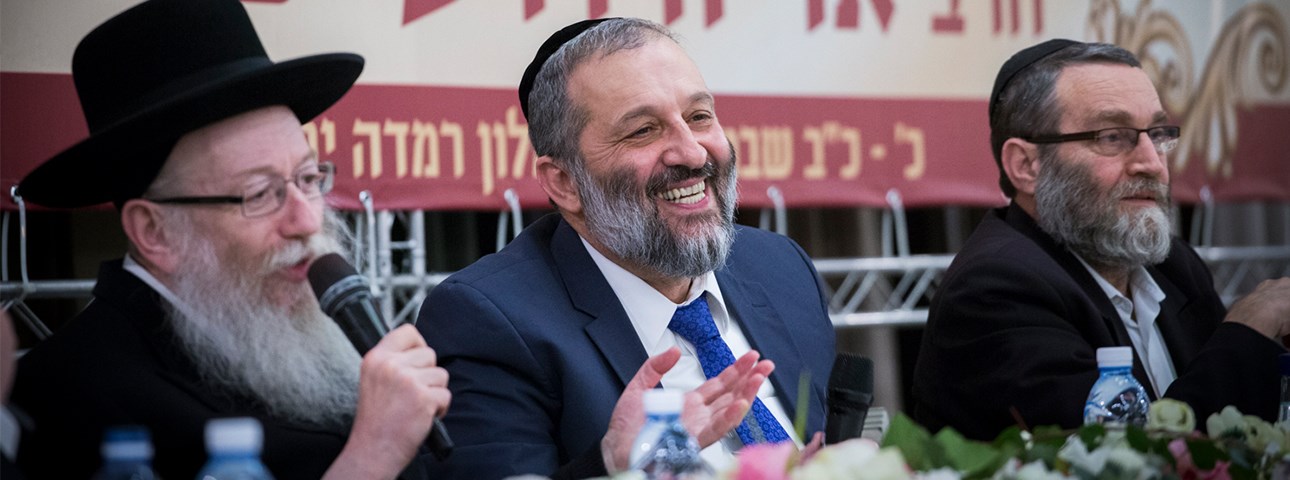
Written By: Yohanan Plesner , Prof. Yuval Shany, Prof. Yedidia Z. Stern
In a letter to the Members of Knesset, IDI's management clarifies that the ultra-Orthodox proposed legislation will influence budgetary matters such as allocations to Yeshiva students and housing grants, and will place Israel’s national security in jeopardy

Written By: Yohanan Plesner , Prof. Yedidia Z. Stern, Prof. Yuval Shany
Letter to Members of the Knesset on the proposed Basic Law: Torah Study - "This is an extremist proposal to enshrine the principle of inequality in our law books.Its adoption could undermine the IDF’s model of service and place Israel’s national security in jeopardy"

Written By: Prof. Yedidia Z. Stern
Powerful forces are pushing against the rule of law, attempting to derail it. From the perspective of those who wish to preserve the rule of law, we are living in a Greek tragedy whose dreadful outcome is foreknown.

Written By: Prof. Yedidia Z. Stern
Prof. Yedidia Stern: "These rabbis, who loudly extol the virtues of Jewish statehood, do not hesitate to drag the people’s army into the arena of conflict with their irresponsible statements."
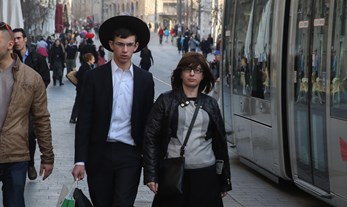
Written By: Prof. Yedidia Z. Stern
Stereotypes—both positive and negative—are an obstacle to the development of a genuine partnership between the ultra-Orthodox and the rest of Israeli society. The Haredim are Israel's biggest sociological mystery. We must learn the facts rather than engaging in speculation.

Written By: Prof. Yedidia Z. Stern
The general picture produced by the Democracy Index is of a manic-depressive society – is this the beginning of a transition from a turbulent and confused adolescence into a quiet and steady adulthood?

Written By: Prof. Yedidia Z. Stern
At approximately eight million people, diaspora Jewry comprises the fifth tribe of Israel. The Knesset is currently debating a proposal, which among other things addresses the connection with Diaspora Jewry entitled “Israel – The Nation State of the Jewish People”.
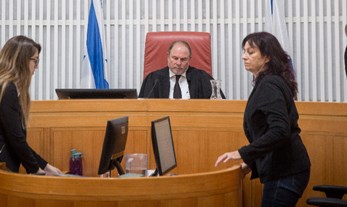
Written By: Prof. Yedidia Z. Stern
On the link between ‘who’ and ‘what’ in Judicial rulings

Written By: Prof. Yedidia Z. Stern
Israelis must unite around a balanced arrangement that asserts that Israel is the nation-state of the Jewish people that guarantees equality for all its citizens.

Written By: Prof. Yedidia Z. Stern
To encourage enlistment, Israel should adopt a conscription model that is cognizant of the ultra-Orthodox fear of erosion of their identity and employs both positive and negative economic incentives.

Written By: Yohanan Plesner , Prof. Mordechai Kremnitzer, Prof. Yedidia Z. Stern
If Israel was founded as the state of the Jewish people, why is a nation-state law so problematic, having already toppled one government?

Written By: Prof. Yedidia Z. Stern
The whole world must be the arena of the war against antisemitism and the Jewish nation-state must serve as the supreme commander in this universal conflict.
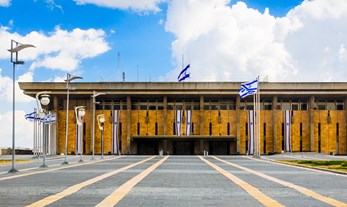
Written By: Prof. Yedidia Z. Stern
“Pray for the welfare of the government. For if it were not for fear of it, one man would swallow his fellow alive (Avot 3:3).”
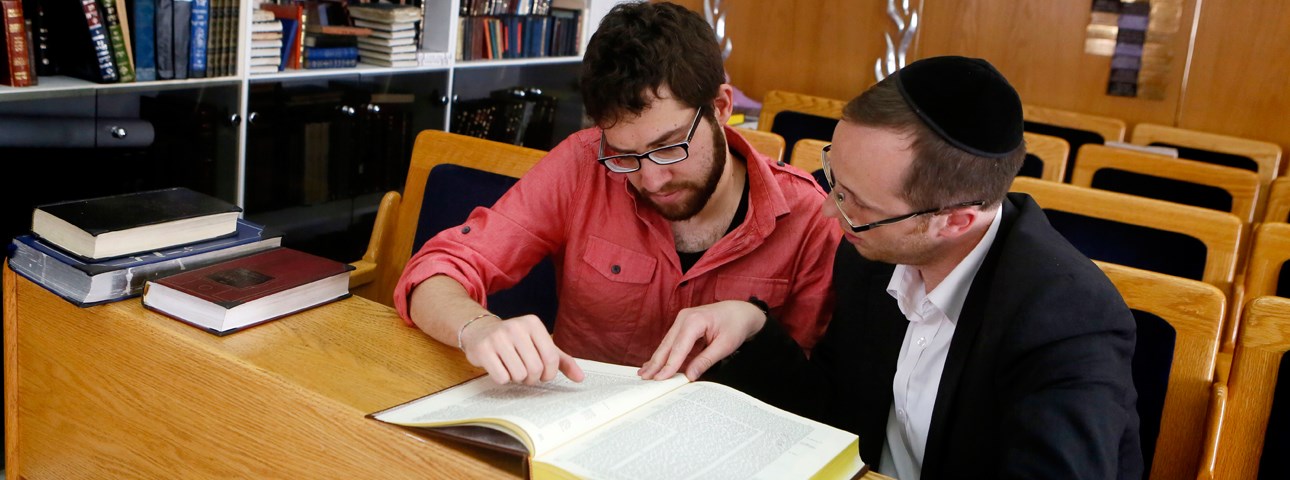
Written By: Prof. Yedidia Z. Stern
Prof. Yedidia Stern argues that our Jewish identity and culture depend on how we understand and internalize the past.

Written By: Prof. Yedidia Z. Stern
Ahead of Israel Independence Day: If we are willing to turn down the volume of the extreme voices and listen instead to the mainstream representatives in each of Israel's sectors, we will find cause for optimism about the shared Israeli future.
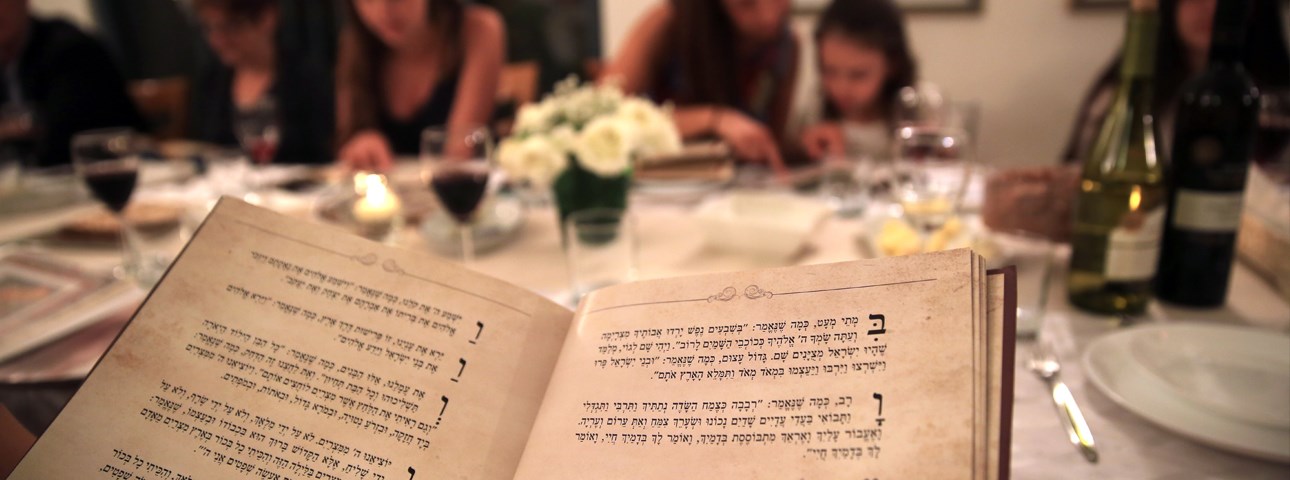
Written By: Prof. Yedidia Z. Stern
The truly great task is to push ourselves to be accountable, personally and nationally, to the question of purpose.

Written By: Prof. Yedidia Z. Stern
Leaving issues of religion and state to an ultra-Orthodox monopoly is leading to estrangement between Israel and the Diaspora. New arrangements must be reached.

Written By: Prof. Yedidia Z. Stern
The ruling by the European Court of Justice (ECJ) that a company is permitted to terminate its worker for wearing religious dress is a sad demonstration of the words of Ecclesiastes: “And moreover I saw under the sun the place of judgment, that wickedness was there; and the place of righteousness, that iniquity was there.”

Written By: Prof. Yedidia Z. Stern
It is almost certain that readers of this article will not recognize the name of this man, the terrorist who caused more damage to Israel’s security than any other attacker in recent years. His name is Abdel Fattah al-Sharif, 21, from Hebron.
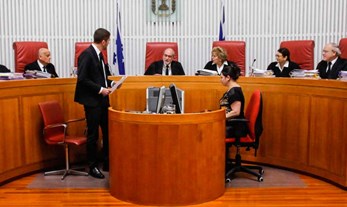
Written By: Prof. Yedidia Z. Stern
The four new Judicial Appointments Committee selections to the Supreme Court last month have led to the usual partisan responses, breaking down along the lines of “winners” and “losers.” Despondent claims of an “anti-constitutional revolution” are being made simultaneously with celebratory assertions of “making history.” The facts, however, are quite different.

Written By: Prof. Yedidia Z. Stern
Yedidia Stern examines the tension between religion and state in Israel by exploring several key areas of dispute in Jewish Israeli society and politics. This paper was first published by Brookings.

Written By: Prof. Yedidia Z. Stern
Is Israeli democracy weak, fragile and on the brink of collapse, or is it robust, stable and resilient?

Written By: Prof. Yedidia Z. Stern
The 2016 Israeli Democracy Index, which was published last week by the Israel Democracy Institute, reveals that our Israeli society is generally strong, optimistic, united and confident.

Written By: Prof. Yedidia Z. Stern
Rosh Hashanah, the Jewish New Year, is an opportunity to stop and ponder how much we love to forget or forget to love. This article was originally published by the Jewish Journal.

Written By: Prof. Yedidia Z. Stern
It is time for all of us to rethink the desired character of the Israeli Shabbat. This article was originally published by Times of Israel.

Written By: Prof. Yedidia Z. Stern
Although one need not agree with the positions held by Israel’s Arab citizens, it can’t be denied that they constitute an independent, moderate voice – and a promising political middle ground on the Palestine- Israeli conflict. This article first appeared in The Jerusalem Post.
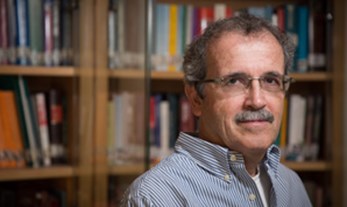
Written By: Prof. Yedidia Z. Stern
The Second Temple in Jerusalem was destroyed, as tradition has it, because of groundless hatred between Jews. IDI's Yedidia Stern takes this opportunity on Tisha B'Av to reflect on the current culture war in Israel, and urge citizens to focus on the covenant of destiny that binds us, rather than the divisions between us.
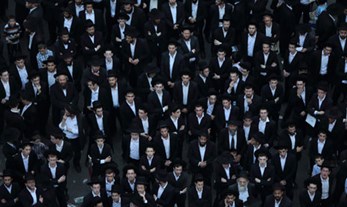
Written By: Prof. Yedidia Z. Stern
Israel needs to abandon the vindictive approach of trying to reform ultra-Orthodox society through force and budget cuts, and rather start investing heavily in education and job creation in the ultra-Orthodox sector. This op-ed was first published in the New York Jewish Week.
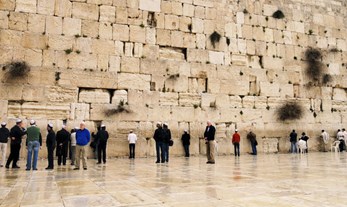
Written By: Prof. Yedidia Z. Stern
No aspect of the current Western Wall plaza arrangement, in which the Orthodox maintain a monopoly, will change if other denominations are allowed to pray at the foot of the Temple Mount in a new plaza. This article was first published by The Jerusalem Post.

Written By: Prof. Yedidia Z. Stern
What do the two candidates for the American presidency — Hillary Clinton and Donald Trump — have in common? Almost nothing at all — except that their children are married to Jews. This op-ed by Yedidia Stern originally appeared in the Jewish Journal.

Written By: Prof. Yedidia Z. Stern

Written By: Prof. Yedidia Z. Stern
The transition between Passover and Israel’s Independence Day is a symbolic transition from a holiday that centers on Godly miracles to a holiday that centers on human actions.

Written By: Prof. Yedidia Z. Stern
There is a necessary condition that must be fulfilled for the existence of our nation-state to be justified: there must be an unconditional guarantee of civic equality for our national minorities. In this area, there is still much to be done.

Written By: Prof. Yedidia Z. Stern
In an op-ed first published by The Jerusalem Report, Prof. Yedidia Stern says this intifada of knives has left Israel in a twilight zone. It is not a time of war, in which the army is permitted to use arms more freely. But nor is it a time of peace in which any use of arms is seen as most irregular. Sharp differences of opinion between the public and the army could lead to a crisis in public confidence in the military high command. There is a crying need for responsible leadership.

Written By: Prof. Yedidia Z. Stern
Earlier this month, change snuck in through the back door of Israel's court system when Israel’s first ultra-Orthodox judge was appointed. This article was first published by the Jewish Press.

Written By: Prof. Yedidia Z. Stern
IDI Vice President Yedidia Stern says, "There is no way to justify this ultra-Orthodox sectarianism, as it prevents others from having the freedom to exercise their religion at public facilities. Allowing ritual baths to be monopolized by the Rabbinate would cause grave harm without any commensurate benefit."
This article was first published by Times of Israel.
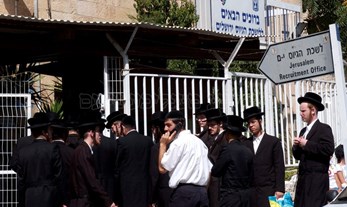
Written By: Prof. Yedidia Z. Stern
The desired result could have been achieved quietly and efficiently had the Knesset adopted a rational arrangement that would encourage military service through positive and negative economic incentives. (This article was originally published in the Jewish Journal of LA.)
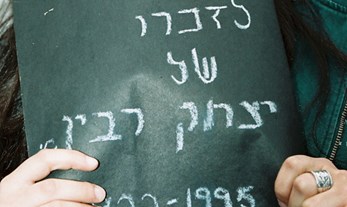
Written By: Prof. Yedidia Z. Stern
IDI Vice President Prof. Yedidia Stern discusses why the memorial day for the murder of Prime Minister Yitzhak Rabin was a religious act. Today's religious Zionist leadership must respond courageously.
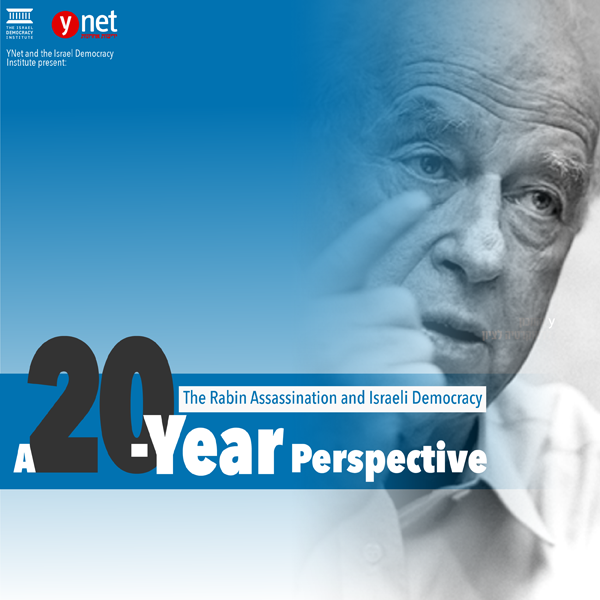
Written By: Prof. Yedidia Z. Stern
In this memoir, Prof. Yedidia Stern recounts the murder of Prime Minister Yitzhak Rabin and calls on the Israeli public to turn that horrid day into an annual “Israeli Democracy Day." This article was first published in the Jerusalem Post.

Written By: Prof. Yedidia Z. Stern
In a poetic piece written for Yom Kippur, IDI Vice President Prof. Yedidia Stern asserts that prayer should echo the existential human experience, reflect the ongoing dialogue with alternative cultures, and allow the individuals praying to bring their whole selves into their prayer.
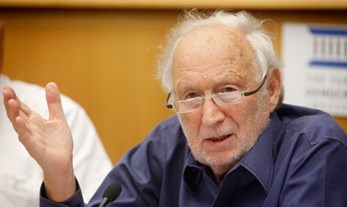
Written By: Prof. Yedidia Z. Stern
IDI Vice President Prof. Mordechai Kremnitzer remembers Israeli Supreme Court Deputy President Mishael Cheshin, a luminary of the Israeli judicial system and warrior against governmental corruption, who regularly spent time at IDI and whose clear voice on legal issues will be sorely missed.
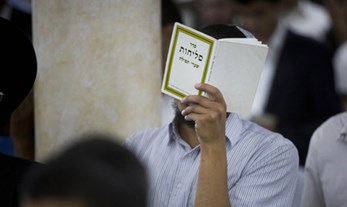
Written By: Prof. Yedidia Z. Stern
The High Holy Days are a time of reflection and personal growth. But since the founding of the State of Israel, personal repentance is no longer enough. IDI Vice President Yedidia Stern stresses the need to transform Jewish traditions from the personal sphere to the public sphere and calls for collective, national repentance, Israeli style.

Written By: Prof. Yedidia Z. Stern
Professor Yedidia Stern argues that the question of how we should relate to the Temple Mount is more complex than any other issue on the public agenda in Israel. This question must be discussed in three parallel dimensions—religious, national, and liberal. This poses a serious challenge, which must be approached with the utmost sensitivity.
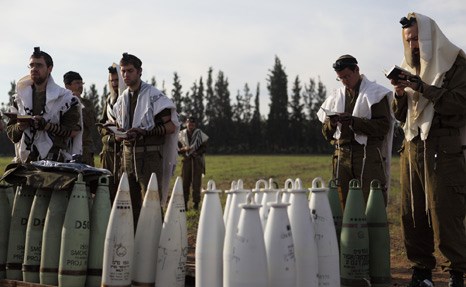
Written By: Prof. Yedidia Z. Stern
Prof. Yedidia Stern analyzes the problems with past proposals to integrate the ultra-Orthodox sector into the IDF, and proposes a new solution.

Written By: Prof. Yedidia Z. Stern
Prof. Yedidia Stern urges Israel's leaders to stop tiptoeing around the core issues of religion and state in the Knesset election campaign, and to take a clear position on the matter.

Written By: Prof. Yedidia Z. Stern
Yohanan Plesner argues that as Denmark grieves for a terror attack on its soil, Israeli leaders must broadcast "a message of partnership among democracies battling terrorism without sacrificing their democratic values."

Written By: Prof. Yedidia Z. Stern
In an article in the <em>Jewish Week</em>, IDI Vice President Yedidia Stern discusses the question of whether it is appropriate for commanders to use religious rhetoric in motivating their soldiers, and stresses the need for the Israeli army to represent all.

Written By: Prof. Yedidia Z. Stern
On the 19th anniversary of the assassination of Yitzhak Rabin, Prof. Yedidia Stern asserts that if the annual memorial day for the late prime minister were to be observed as Israeli Democracy Day, Rabin's legacy for the future would be even greater.
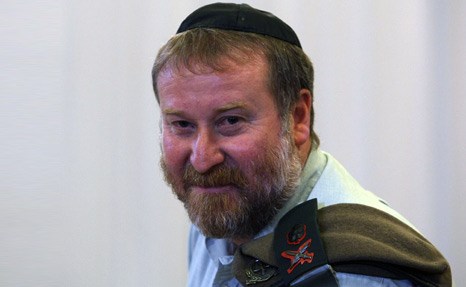
Written By: Prof. Yedidia Z. Stern
IDI Vice President Yedidia Stern asserts that there is a conflict of interest between the Attorney General’s two functions—as State Attorney and State Prosecutor—and the office must be split in two.

Written By: Prof. Yedidia Z. Stern
An exploration of the existential, social, and economic dimensions of the Shmita year, that calls for bringing together social, moral, cultural, religious and national forces to implement the idea of Shmita in non-agricultural and national contexts in Israel.
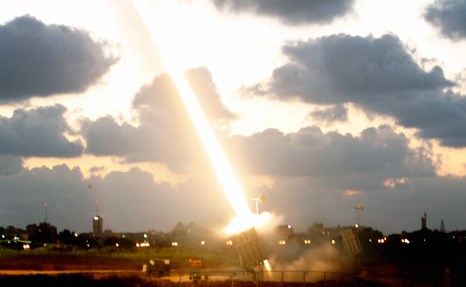
Written By: Prof. Yedidia Z. Stern
In an op-ed in <em>Yedioth Ahronoth</em>, Prof. Yedidia Stern warns that the Iron Dome could not protect Israel from hatred between Jewish and Arab citizens, and stresses the need for both sides to use imaginative empathy to mend the fabric of Israel's shared society.?
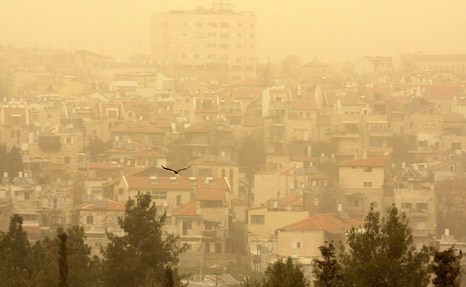
Written By: Prof. Yedidia Z. Stern
In an article in <em>Makor Rishon</em>, Prof. Yedidia Stern describes his feelings of sadness, pride, apprehension, and hope upon the sentencing of Ehud Olmert to prison for his role in the Holyland affair.

Written By: Prof. Yedidia Z. Stern
IDI Vice President Prof. Yedidia Stern reflects on the privilege of sacrifice and the necessity to maintain a Jewish Israel in order to justify that sacrifice, in an article written for Remembrance Day for the Fallen of Israel's Wars and Victims of Terrorism.
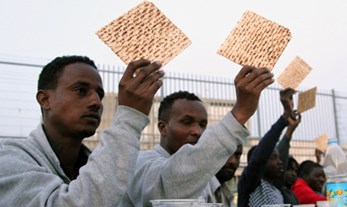
Written By: Prof. Yedidia Z. Stern
Prof. Yedidia Z. Stern asserts that if we see ourselves as "other" and identify with the stranger, the poor, and people with disabilities, historic redemption of our ancestors from Egypt will be an ongoing redemption for our generation.

Written By: Jay Ruderman, Prof. Yedidia Z. Stern
Should the State of Israel recognize "Israeli" as a nationality? IDI Vice President Prof. Yedidia Stern and Jay Ruderman assert that it is imperative for the State of Israel to continue distinguishing between citizenship and nationality.

Written By: Prof. Yedidia Z. Stern
As the Shaked Committee begins to vote on its proposal for the Haredi draft, Prof. Yedidia Z. Stern warns that the proposal's recommendation to exempt Haredi men of draft age during a three-year "adjustment period" is both inequitable and ineffective.

Written By: Prof. Yedidia Z. Stern
On November 21 2013, Prof. Yedidia Z. Stern appeared before the Shaked Committee and argued that criminal sanctions are not recommended for reaching conscription goals. In an op-ed in Makor Rishon, he explains why.

Written By: Prof. Yedidia Z. Stern
How should Jews in Israel feel about the mass slaughter of Arabs by Arabs just a few miles away? IDI Vice President Prof. Yedidia Z. Stern shares thoughts in this article, which was originally published in The Jewish Week.

Written By: Prof. Yedidia Z. Stern
Prof. Yedidia Stern shares thoughts on the connection between failure of the ultra-Orthodox "Tov" party in the local elections, the Haredi draft bill being debated by the Shaked Committee, and Newton's laws of motion.

Written By: Prof. Yedidia Z. Stern
Prof. Yedidia Z. Stern shares thoughts on the Hebrew calendar, which contributes to Jewish unity and preserves the Jewish people as a single national and cultural unit.

Written By: Prof. Yedidia Z. Stern, Jay Ruderman
The first in a series of articles by researchers from IDI's Judaism and democracy projects and Human Rights and Judaism project on the complementary but tense relations between Judaism and democratic values.
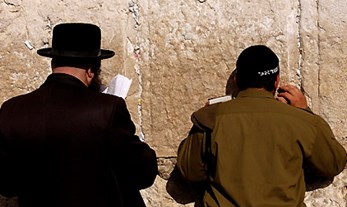
Written By: Prof. Yedidia Z. Stern
Is it possible to draft the ultra-Orthodox and integrate them into Israel's society and economy in a mutually-agreeable manner that encourages solidarity between the different sectors of the Jewish people? Prof. Yedidia Z. Stern shares thoughts on wars between brothers and brothers-in-arms.
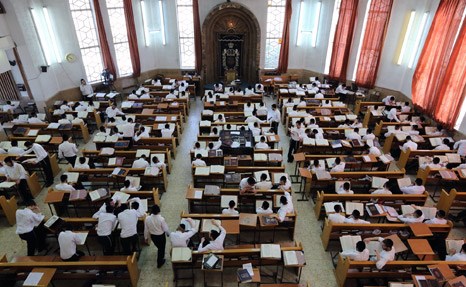
Written By: Prof. Yedidia Z. Stern, Haim Zicherman
Prof. Yedidia Z. Stern and Attorney Haim Zicherman stress the need to break down barriers that are preventing Haredi service in the army and integration in the labor force, and warn against passing a popular but ill-advised reform.

Written By: Prof. Yedidia Z. Stern
Is it advisable to hold a referendum on a peace deal involving territorial concessions? In an article originally published in the Israeli Bar Journal, IDI Vice President Prof. Yedidia Stern expresses his reservations—and proposes an alternative.

Written By: Prof. Yedidia Z. Stern
In an op-ed in<em> The Jewish Week</em>, IDI Vice President of Research Yedidia Z. Stern asserts that the election of two Haredi Chief Rabbis was a failure on three levels: political, religious, and cultural.
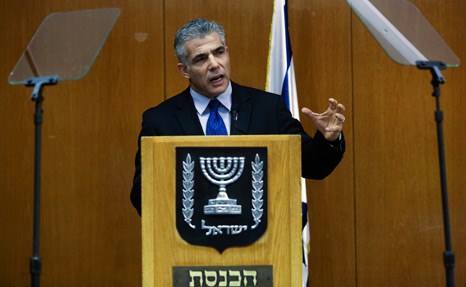
Written By: Prof. Yedidia Z. Stern
IDI Vice President of Research Prof. Yedidia Stern warns that the hasty passage of the proposed government bill on the Haredi draft would be "old politics," and stresses the importance of a Knesset debate to arrive at balanced legislation that is in line with the national interest.

Written By: Prof. Yedidia Z. Stern
IDI Vice President of Research Prof. Yedidia Stern warns that the Peri Committee recommendations on the ultra-Orthodox draft will undo progress already made in integrating Israel's Haredi community into Israeli society.
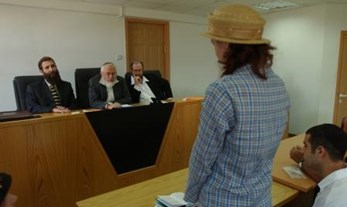
Written By: Prof. Yedidia Z. Stern
IDI Vice President Prof. Yedidia Stern responds to the State Comptroller's findings on conversion in Israel and calls for a solution that will enable Israelis from the former Soviet Union to join the ranks of the Jewish people.

Written By: Prof. Yedidia Z. Stern, Jay Ruderman
In an op-ed in <em>The Jewish Week</em>, IDI Vice President Prof. Yedidia Z. Stern and Jay Ruderman share thoughts on the successes of the State of Israel and on one area in which Israel has fallen short of expectations.
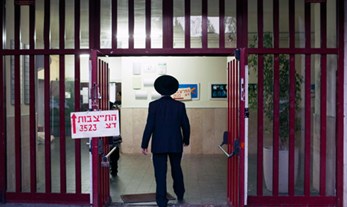
Written By: Prof. Yedidia Z. Stern
Prof. Yedidia Stern calls for a historic alliance between religious and secular moderates that will yield a solution that will that will yield a solution that addresses the need for ultra-Orthodox army service while taking into account the most important values of the Haredi community.

Written By: Prof. Yedidia Z. Stern
Following the elections of 2013, IDI Vice President Prof. Yedidia Z. Stern hails the incoming Knesset as a unique opportunity to change the nature of the State of Israel so that it is both more Jewish and more democratic at the same time.
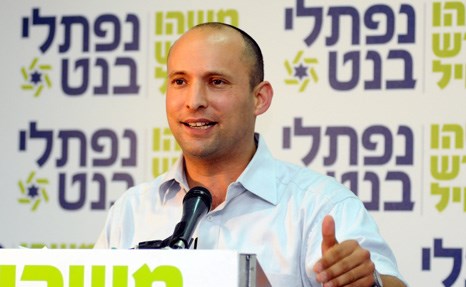
Written By: Prof. Yedidia Z. Stern
Naftali Bennett's statement that he would refuse orders if commanded to evacuate settlements raises questions about the type of insubordination that he and his party condone. In an op-ed in Yedioth Ahronoth, Prof. Yedidia Stern calls on Habayit Hayehudi to clarify its position on the matter.
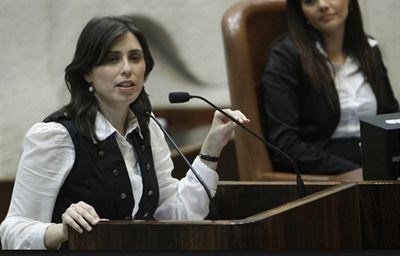
Written By: Prof. Yedidia Z. Stern
In an op-ed written in response to Rabbi Shlomo Aviner's declaration that women are forbidden to serve in the Knesset, IDI Vice President Prof. Yedidia Stern discusses the struggle between the integrationist and isolationist trends within Religious Zionism.

Written By: Prof. Yedidia Z. Stern, Jay Ruderman
In an op-ed in The Jerusalem Post, IDI's Prof. Yedidia Stern, who served on the Plesner Committee for Equality in National Service, and Mr. Jay Ruderman analyze the Haredi community's reluctance to serve in the Israeli army and present an approach that will facilitate Haredi integration into Israel's army and society.
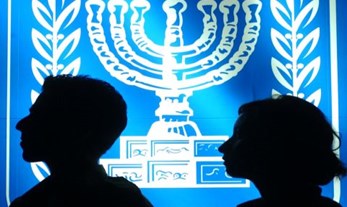
Written By: Prof. Yedidia Z. Stern
What kind of state are we celebrating when we commemorate Israel Independence Day? Prof. Yedidia Stern discusses the tension between the "Jewish" and "democratic" aspects of Israeli's identity and explores the attacks of the concept "Jewish state" by three fundamentalist camps: religious, ultra-nationalist, and liberal.

Written By: Prof. Yedidia Z. Stern
In a Passover article in The Jerusalem Post, Prof. Yedidia Stern discusses the tension between relying on miracles and assuming responsibility and asserts that miracles, no matter how significant they may be, are not a life plan for individuals or for the Jewish people.

Written By: Prof. Yedidia Z. Stern
IDI Vice President of Research Prof. Yedidia Stern sets the controversy over mass transportation on Shabbat and holidays in Israel in a broader context, and distinguished between the need for an Israeli-Jewish Shabbat (Sabbath) rather than a religious Shabbat.

Written By: Prof. Yedidia Z. Stern
The death of John Demjanjuk of natural causes at a ripe old age left many Israelis feeling that an opportunity for justice was missed. Did the Israeli legal system fail when it acquitted Demjanjuk of crimes against humanity? IDI Vice President Prof. Yedidia Stern distinguishes between justice and law, and expresses pride that the Israeli Supreme Court ruled as it did.

Written By: Prof. Yedidia Z. Stern
The Supreme Court's decision to strike down the Tal Law, after 30 years of avoiding the issue of the exemption of ultra-Orthodox Jews from military service, is an expression of judicial activism that illustrates the transformation that the Israeli Supreme Court has undergone in the last generation. In this op-ed, originally published in Hebrew in <em>Makor Rishon</em>, IDI Vice President Prof. Yedidia Stern asserts that the Court went too far in this ruling and that its activism is hard to justify.
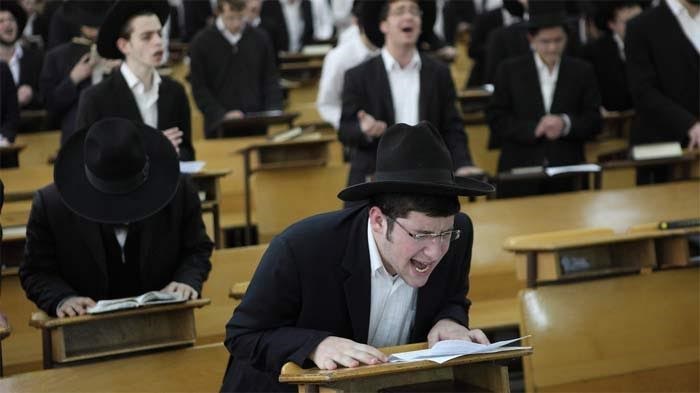
Written By: Prof. Yedidia Z. Stern
Will the Israeli Supreme Court's ruling that the Tal Law is unconstitutional really guarantee that the burden of Israel's defense will be shared equally by the country's citizens? IDI's Prof. Yedidia Stern warns that this ruling may actually hinder the integration of the Haredi community into Israeli society rather than promoting it.

Written By: Prof. Yedidia Z. Stern
Why is the marginalization of women in Israeli society and their exclusion from the public sphere on the rise in Israeli society? In this op-ed, IDI Vice President of Research Prof. Yedidia Stern focuses on the religious Zionist community and the power struggle to determine who will control the public sphere and the space of the religious community.

Written By: Prof. Yedidia Z. Stern
The proposed "Basic Law: Israel – The Nation State of the Jewish People" has the support of one third of the members of Knesset. In this op-ed, which was originally published in Hebrew in Yedioth Ahronoth, IDI Vice President of Research Prof. Yedidia Z. Stern, who is deeply committed to the Jewish nature of the State of Israel, warns that the shift from defining Israel as a "Jewish and democratic state" to a "Jewish state with a democratic regime" is not a semantic shift, but a seismic change.
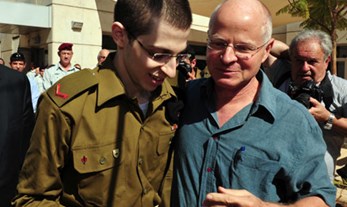
Written By: Prof. Yedidia Z. Stern
The terms of the Gilad Shalit swap presented Israel with a conflict between the interests of an individual and the interests of the collective. Prof. Yedidia Z. Stern discusses the factors that contribute to Israel's extreme sensitivity to captives, warns of the dangers of choosing the individual over the collective, and calls for steps to be taken to ensure that Israel will have firm guidelines for such situations in the future.

Written By: Prof. Yedidia Z. Stern
The period of the Jewish High Holidays is a time of reflection and introspection. In this op-ed, originally published in Yedioth Ahronoth on September 26, 2011, IDI Vice President of Research Prof. Yedidia Z. Stern reflects on the gap that emerged between the agenda of the Knesset and the agenda of the Israeli public during 2010-2011 and expresses hope that the message of the social-economic protest of the summer of 2011 will point the Knesset in the right direction in the year to come.

Written By: Prof. Yedidia Z. Stern
In an op-ed originally published in Haaretz on June 18, 2010, IDI Vice President Prof. Yedidia Z. Stern responds to the dramatic events in the city of Immanuel, warns secular society about the growing demonization of the Haredi community, and urges the Haredi community to have greater faith in the courts—the ultimate protectors of the rights of minorities.

Written By: Prof. Yedidia Z. Stern
In anticipation of his forthcoming book on the challenges of rabbinic leadership in Israel, IDI Vice President for Research Prof. Yedidia Z. Stern, shares his opinion on the role of rabbis in Israeli society.

Written By: Prof. Yedidia Z. Stern
In an op-ed from Yedioth Ahronoth written in honor of Israel's 63rd Independence Day, IDI Vice President of Research Yedidia Z. Stern reflects on the quality of Israeli independence, and asserts that a connection with the wellsprings of Jewish culture is necessary for maintaining the quality of the independence that Israel holds so dear.

Written By: Prof. Yedidia Z. Stern
In an op-ed in Yedioth Ahronoth, IDI Vice President Yedidia Z. Stern responds to the proposed "Dov Lior Bill" and decries the possibility that members of the clergy—of any religion—be above the law and immune from prosecution for incitement to violence when their religious teachings may encourage criminal behavior.

Written By: Dr. Arye Carmon, Prof. Yedidia Z. Stern, Prof. Mordechai Kremnitzer
A number of controversial bills recently tabled in the Knesset undermine basic constitutional values, add fuel to the international assault on Israel's legitimacy, and may end up damaging Israel's democratic character. In an article in The Jerusalem Post, IDI Former President and Founder Dr. Arye Carmon and Vice Presidents Professors Mordechai Kremnitzer and Yedidia Z. Stern respond to these initiatives.

Written By: Prof. Yedidia Z. Stern
In an op-ed in Yedioth Ahronoth, IDI Vice President of Research Prof. Yedidia Z. Stern urges the Israeli government to fend off political pressure, act morally, and assert that anyone who has converted to Judaism in the Israel Defense Forces is a Jew.

Written By: Prof. Yedidia Z. Stern, Avi Sagi
What does loyalty mean? Loyalty to whom? In this op-ed from <em>Haaretz </em>(October 15, 2010), which was written in response to the passage of the "loyalty oath" legislation, IDI Vice President Prof. Z. Yedidia Stern and Prof. Avi Sagi explore the concept of "loyalty" and focus on whether Israel should require prospective citizens to take an oath affirming their loyalty to the Jewish and democratic state.

Written By: Prof. Yedidia Z. Stern
Is the boycott of the town of Ariel, which is located over the Green Line, by Israeli performing artists legitimate? In this op-ed from Yedioth Ahronoth, IDI Vice President Yedidia Z. Stern warns that this type of organized opposition to democratic decisions endangers the delicate fabric of Israeli life.

Written By: Prof. Yedidia Z. Stern
During the summer of 2010, Jews in both Israel and the Diaspora voiced their concern regarding the Rotem bill, the controversial conversion legislation approved by the Knesset’s Constitution, Law, and Justice Committee. In this op-ed, originally published in The Jerusalem Post, IDI Vice President Prof. Yedidia Z. Stern issues an urgent plea to resolve Israel's conversion crisis in order to avoid the "social time bomb on our doorstep."

Written By: Prof. Yedidia Z. Stern, Netanel Fisher
On July 12, 2010, the Knesset’s Constitution, Law, and Justice Committee approved a controversial draft bill on conversion reform. Presented as an effort to make conversion more accessible to hundreds of thousands of Israeli citizens who are not Jewish according to state and religious law, the proposed legislation sparked an outcry both in Israel and the Diaspora. In this article, IDI Researcher Netanel Fisher exposes the dangerous linkage between conversion and the status of Judaism's non-Orthodox movements and assesses the likelihood of the bill achieving its goals.

Written By: Prof. Yedidia Z. Stern
In this article, IDI Vice President Prof. Yedidia Z. Stern explains the current conversion crisis in Israel, reviews the evolution of attitudes towards conversion in halakhic literature over the ages, and concludes with a proposal that is compatible with Jewish law while responding to pressing contemporary needs.

Written By: Prof. Yedidia Z. Stern
In an op-ed in Yedioth Ahronoth, Prof. Yedidia Stern points to segments of Israel's population that denounce the national values of the State: supporters of “normalization,” ultra-Orthodox Jews, Arab Israelis, and a new group that has joined them: ultra-nationalists.

Written By: Prof. Yedidia Z. Stern
The following op-ed by IDI Vice President of Research Prof. Yedidia Z. Stern was originally published in Hebrew in the <em>Yedioth Ahronoth</em> daily newspaper on December 8, 2010, just before the Knesset was scheduled to vote on a bill that would recognize the validity of all conversions performed within the context of the service in the Israel Defense Forces—a vote that Prime Minister Benjamin Netanyahu delayed by several days due to competing pressure within the political system. It urges the Israeli government to fend off political pressure, act morally, and assert that anyone who has converted to Judaism in the IDF is a Jew.

Written By: Prof. Yedidia Z. Stern
IDI Vice President Prof. Yedidia Stern dissects the tenuous road traveled by the Israeli court system, in an article that was published at the end of the third millennium as part of a collaboration between IDI and Walla!, a popular Israeli website.

Written By: Prof. Yedidia Z. Stern
In an op-ed in Yedioth Aharonoth, IDI Vice President of Research Prof. Yedidia Z. Stern calls on the leaders of each "tribe"—Russian, ultra-Orthodox, settler, and upper class— to take action to eradicate the negative behavior stereotypically associated with their camp.

Written By: Prof. Yedidia Z. Stern
In late 2009, a series of crimes were committed by individuals who hailed from different sectors of Israeli society—Russian, ultra-Orthodox, the settlers, and the Israeli upper class. These crimes were attributed to the actualization of traits stereotypically associated with the "tribe" of each perpetrator. In an op-ed in <em>Yedioth Aharonoth</em>, Prof. Yedidia Z. tern warns against public displays of tolerance that create a cultural "city of refuge" that condones such behavior, and calls on the leaders of each "tribe" to assume responsibility and take action to eradicate the negative behavior associated with their camp.

Written By: Prof. Yedidia Z. Stern
In an article in the Hebrew journal Eretz Acheret, IDI Vice President Yedidia Stern discusses the tension between two civilizations - western-liberal and traditional-Jewish - in Israel, and asserts that the agents of influence in Israeli society prefer to present these two values as mutually exclusive alternatives that are set up for a culture war. To read the full article published in Eretz Acheret, click here.

Written By: Prof. Yedidia Z. Stern
In an article originally published in <em>Haaret</em>z, Prof. Yedidia Z. Stern writes of Israel's anxious national psyche and offers a few cases of false Israeli apprehensions that have been created by distorted perceptions of reality.

Written By: Prof. Yedidia Z. Stern
In an article originally published in The Jerusalem Post, Prof. Yedidia Z. Stern responds to criticism levied against the Israel Democracy Institute following its receipt of the Israel Prize for Lifetime Achievement.

Written By: Prof. Yedidia Z. Stern
Prof. Yedidia Z. Stern examines the reality of the ongoing financial crisis, and tries to explain how such a rational industry gets carried away with reckless decision-making procedures.

Written By: Prof. Yedidia Z. Stern
Prof. Yedidia Z. Stern discusses the issue of limiting salaries of public company executives and argues that the inadequacy of corporate, legal and economic oversight weakens the will to press charges and justifies the call for legislative intervention.

Written By: Prof. Yedidia Z. Stern
In an article originally published in <em>The Forward</em>, IDI's Prof. Yedidia Z. Stern explores the responsibility of the Jewish and democratic state for Sudanese refugees and calls on Israeli religious scholars to formulate a halakhic response.
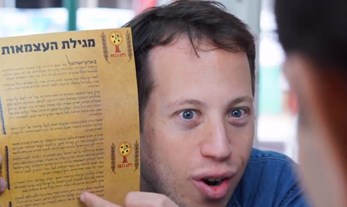
Written By: Yohanan Plesner , Prof. Yuval Shany, Prof. Yedidia Z. Stern, Prof. Mordechai Kremnitzer
The nation state law is the "identity law" of the state, and this will have a revolutionary significance, since democracy is not mentioned in it.